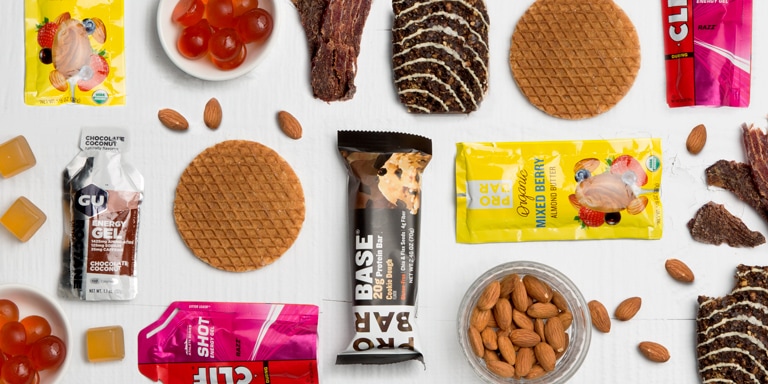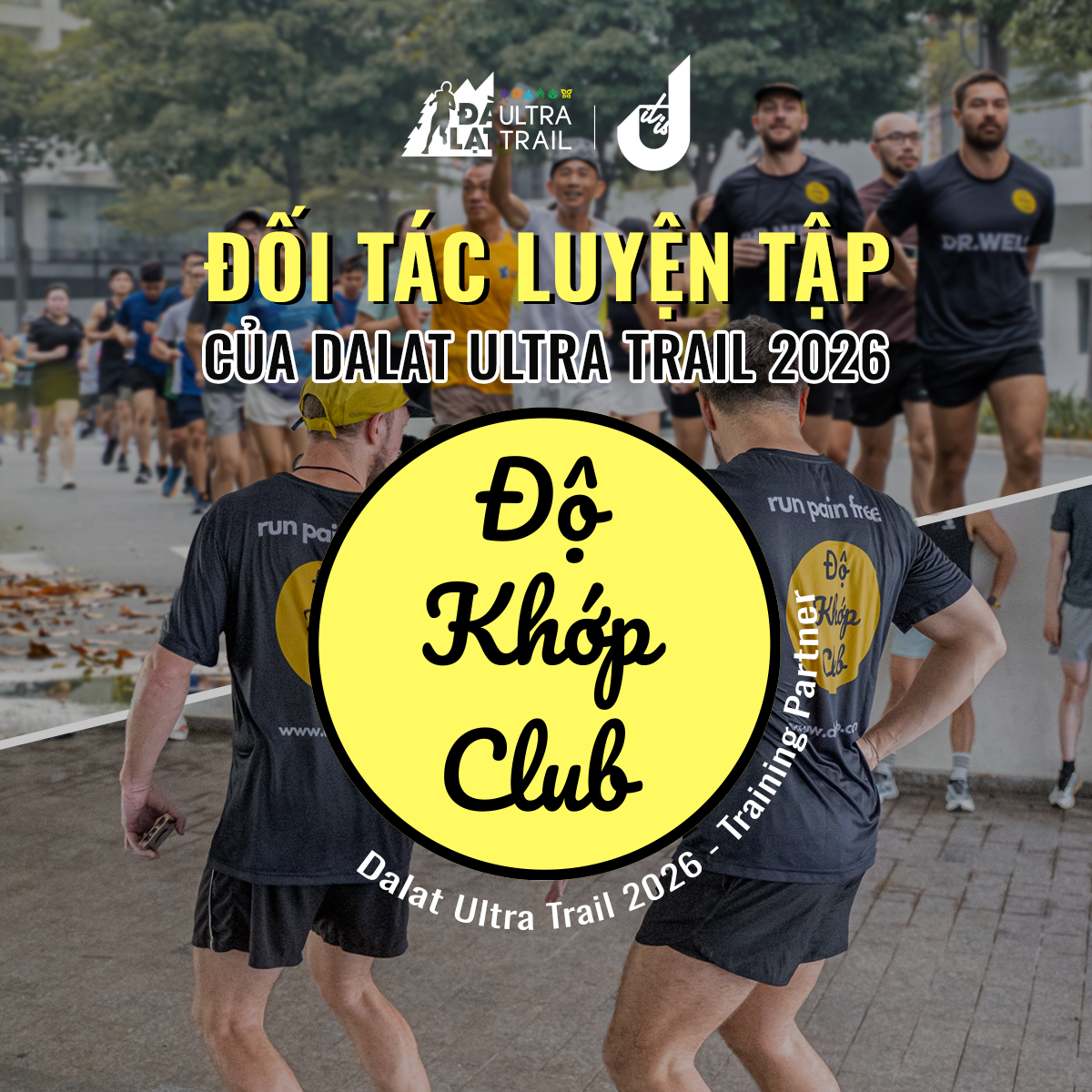
12/25/2025
NUTRITION PLAN FOR TRAIL RUNNING: WHAT TO EAT BEFORE, DURING AND AFTER A RACE?
Discover essential nutrition tips for trail runners: how to eat and refuel at the right time to sustain endurance and recover efficiently.
To conquer any trail running distance, athletes need more than just endurance, determination, and the right gear. A balanced trail running nutrition plan before, during, and after every race is the key to optimal performance and faster recovery. In this guide, Vietnam MTB Series explores the essential principles of nutrition for trail runners, including how to fuel before trail running, maintain stamina on the course, and recover efficiently after reaching the finish line.
Carbohydrates and Fats: The core energy sources for every trail
When it comes to trail running nutrition, your body primarily relies on carbohydrates and fats for energy.
- Carbohydrates are the main and most efficient energy source, stored in the muscles and liver as glycogen. However, these glycogen reserves typically run low after about 90 minutes of continuous activity.
- Fats, on the other hand, provide a longer-lasting and more sustainable energy supply, especially crucial during endurance runs or lower-intensity efforts.
Each body metabolizes energy differently, but on average, runners burn about 60 kcal per kilometer. Depending on your goal and running pace, you can design a trail running nutrition plan that best fits your needs. If you aim to run faster and finish strong, your body will operate at higher intensity levels, relying mostly on glycogen for quick energy. Conversely, if your goal is to maintain a steady heart rate over a longer distance, your body will utilize fat as a more efficient and lasting fuel source.
How to fuel at every stage of trail running
Daily nutrition for trail runners
Alongside your training routine, maintaining a balanced daily diet is essential for building endurance and strength in trail running. Your meals should include the right mix of protein, carbohydrates, healthy fats, vitamins, and minerals to keep your body fueled and ready.
To avoid over- or under-fueling, make sure your calorie intake matches your energy expenditure. Focus on whole, unprocessed foods that are nutrient-dense and support recovery, such as fruits, vegetables, grains, and lean proteins, instead of heavily processed options. A consistent, nutrient-rich diet is the foundation of any effective trail running nutrition plan.
Pre-race nutrition
For shorter routes, pre-fueling may not be essential. However, for long-distance or high-intensity trail runs, carb-loading before race day is crucial to maintain your pace and endurance. A good pre-race meal should contain around 400 kcal from carbohydrates.
Before hitting the trail, have a light meal or snack paired with a hydration drink. Avoid spicy or greasy foods that may upset your stomach. Prioritize carbohydrates as your main fuel source and include a small amount of protein to help you feel satiated. Good examples include toast with peanut butter or oatmeal topped with fruit. Eat at least 2 - 3 hours before the race to give your body time to digest and convert nutrients into energy.
Additionally, choose sodium-rich foods or drinks to help your body maintain hydration. Avoid foods high in fiber or fat to prevent digestive discomfort. Smoothies that combine carbohydrates and protein, such as a fruit smoothie with yogurt or milk, are also excellent for both fueling and hydration.
As the race start time approaches, top up your energy stores with an energy gel or drink mix to help you run longer, faster, and avoid early glycogen depletion.

Start your run by fueling your body with enough nutrition and hydration. (Image source: REI)
During the race: Trail running nutrition on the go
During a trail race, athletes should refuel consistently, taking in about 200 - 300 kcal per hour starting from the first hour. This steady intake allows the body to absorb nutrients efficiently and helps prevent early fatigue.
The best fuel for trail running comes from easily digestible, carbohydrate-rich foods such as energy gels and bars, sports drinks, fruit juice, soft biscuits or waffles designed for endurance athletes.
On-course fueling strategy:
- Short runs: Consume 0.5–1.1 liters of water per hour and 200–300 kcal of carbs per hour.
- Long runs: In addition to carbs and water, include 200–300 mg of sodium and electrolytes per hour to maintain hydration and muscle function.
Your trail running goal also influences your fueling choice:
- If you’re running at a high pace, prioritize liquid fuel such as energy drinks or gels for faster absorption.
- If you’re running longer or slower, you can add solid foods like energy bars or waffles that are easy to chew and digest.
Always remember to stay hydrated throughout the race and set a timer every 30 - 60 minutes to remind yourself to refuel consistently.
As Ultra coach Luân Đỗ, an experienced trail running coach, shared during the “Lên rừng xuống biển” workshop: When preparing race nutrition, always pack extra fuel,about one to two hours’ worth beyond what you expect to need. You never know when unexpected challenges like injury or getting off-track may extend your race time.
Proper nutrition during a long-distance race not only ensures your safety but also has a major impact on your overall performance and endurance.
Post-race nutrition: Recover and rebuild
After crossing the finish line, it’s normal to feel exhausted and that’s when recovery nutrition becomes critical. A balanced post-race meal should include high-quality protein (lean meat, fish, eggs, tofu, legumes) and carbohydrates to replenish glycogen and restore energy levels
Make sure to refuel properly after your trail race to help your body recover faster and get ready for the next challenge.
Each runner’s digestive system is different, so listen to your body and seek guidance from a nutrition expert to develop a personalized trail running nutrition plan that works best for you.
Trail running is a sport that demands endurance, mental strength, and an adventurous spirit. Beyond mastering gear and training, having a well-structured trail running nutrition plan plays a vital role in your journey to conquer the trails and push your limits in nature.
(References: Happy Run, naak)


